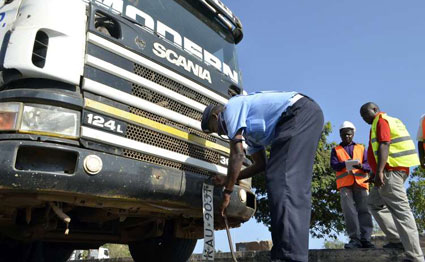
Once again, Kenya is showing that it’s not our mate in this tech business. The Kenyan government has restated its resolve to introduce smart number plates and digital licences by June 2017. It says they will be launched in a bid to improve efficiency in Kenya’s transport sector.
The smart plates will store information such as vehicle chassis number, manufacturer, type and colour of vehicle, engine number, transmission type, date and place of manufacture, and insurance details.
The digital driving licenses, on the other hand, will carry a chip with the holder’s personal information – ID number, contact details, past traffic offences and fines paid over time. They will also operate a point system where holders will get points deducted for various traffic offences. Once the holder’s points are exhausted, their driver’s licenses will be confiscated for a period of time.
Chinese firm, Huawei and Kenyan firm, Copy Cat Group will manage the project under the Transport Integrated Management System (TIMS), a web portal that will incorporate registration, licensing, inspection and enforcement of vehicles. Kenya plans to use TIMS to centralise road transport data and make it available for public use.
The country’s transport management agency, the National Transport and Safety Authority (NTSA) first announced its plans to launch the smart number plates and licenses in 2014 with a view to rolling out the devices in June 2016. However, the project was delayed by court cases.
According to the Daily Nation, the country’s transport officials tampered with bid documents to enable them award the contract to their preferred contractor. In one case, they adjusted the price of equipment and services by up to 3,584 times. The two remaining firms then sued the Public Procurement Administrative and Review Board (PPARB) seeking a reversal of the decision. They won the case and the court ordered that the process be done afresh.
Court proceeding have now been concluded. The smart number plates and licenses are expected to be rolled out in June 2017. Here’s hoping nothing hinders the process this time around and Kenyans will be able to enjoy a more effective transport system in the coming year.










